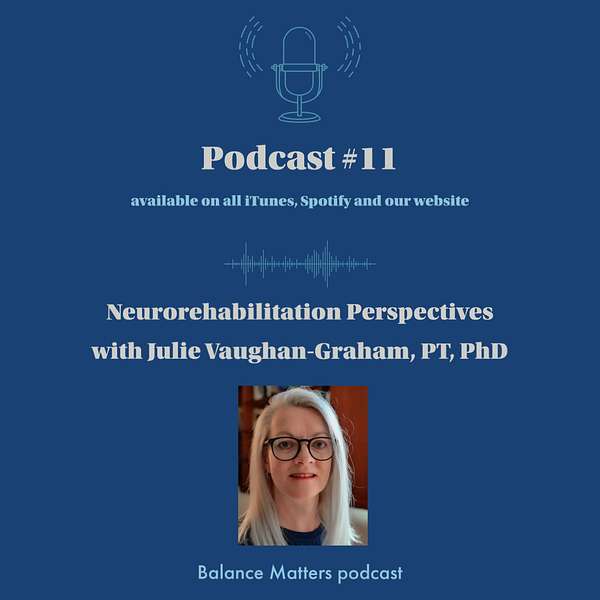
Balance Matters: A neuro physical therapist’s journey to make “Sense” of Balance
Balance Matters: A neuro physical therapist’s journey to make “Sense” of Balance
Neurorehabilitation Perspectives with Dr. Julie Vaughan-Graham
Great discussion on neurorehabilitation perspectives. We discussed are we addressing the client’s perspective? What does the client want and what is their needs vs. what we think may be important. In neurorehabilitation, the therapist is interested in how the person completes the activity, not just the task completion. We talked the importance of observation skills and dived deeper into the Bobath model and current research, as well as compensatory movements, movement synergies and sensory integration.
Bio: Julie Vaughan-Graham PT, PhD
Advanced IBITA Instructor (Honorary Life Member 2020)
Founder, Physio-Logic and iNeuroRehab
Assistant Clinical Professor (Adjunct), School of Rehabilitation Science, McMaster University, Hamilton, Ontario, Canada
Adjunct Lecturer, Department of Physical Therapy, University of Toronto, Canada
Julie graduated from St. Thomas’ Hospital, London, England in 1986 and has worked in the area of neurorehabilitation since 1988. Julie emigrated to Toronto in 1991, initially taking a position at Lyndhurst, Spinal Cord Injury Centre, and then later opening her own private community neurorehabilitation practice, Physio-Logic, in Toronto in 1993.
Julie completed her MSc in Neurological Rehabilitation at Leeds Metropolitan University, UK in 2010, and her PhD at the Rehabilitation Sciences Institute, University of Toronto in 2016. Julie has had a number of post-doctoral positions and she holds an Assistant Clinical Professor (Adjunct) position in the School of Rehabilitation Science at McMaster University and, an Adjunct Lecturer appointment in the Department of Physical Therapy at the University of Toronto.
Julie recently founded iNeuroRehab, an e-learning platform for clinicians. She is an Advanced IBITA instructor, and instructs post-graduate clinical neurorehabilitation courses across Canada and internationally.
Articles we discussed and published by Dr. Vaughan-Graham
After 55 Years of Neurorehabilitation, What Is the Plan? - PubMed (nih.gov)
Vaughan-Graham, J., Patterson, K., Brooks, D., Zabjek, K., & Cott, C. (2019). Transitions sit to stand and stand to sit in persons post-stroke: Path of centre of mass, pelvic and limb loading – A pilot study. Clinical Biomechanics, 61, 22-30. doi:https://doi.org/10.1016/j.clinbiomech.2018.11.004
http://www.sciencedirect.com/science/article/pii/S026800331830620X
Michielsen, M., Vaughan-Graham, J., Holland, A., Magri, A., & Suzuki, M. (2017). The Bobath concept – a model to illustrate clinical practice. Disability and Rehabilitation, 1-13. doi:10.1080/09638288.2017.1417496
https://doi.org/10.1080/09638288.2017.1417496
https://www.tandfonline.com/doi/full/10.1080/09638288.2017.1417496
Vaughan-Graham, J., Patterson, K., Zabjek, K., & Cott, C. (2017). Conceptualizing movement by expert Bobath instructors in neurological rehabilitation. Journal of Evaluation in Clinical Practice, 23(6), 1153-1163. doi:10.1111/jep.12742
https://doi-org.myaccess.library.utoronto.ca/10.1111/jep.12742